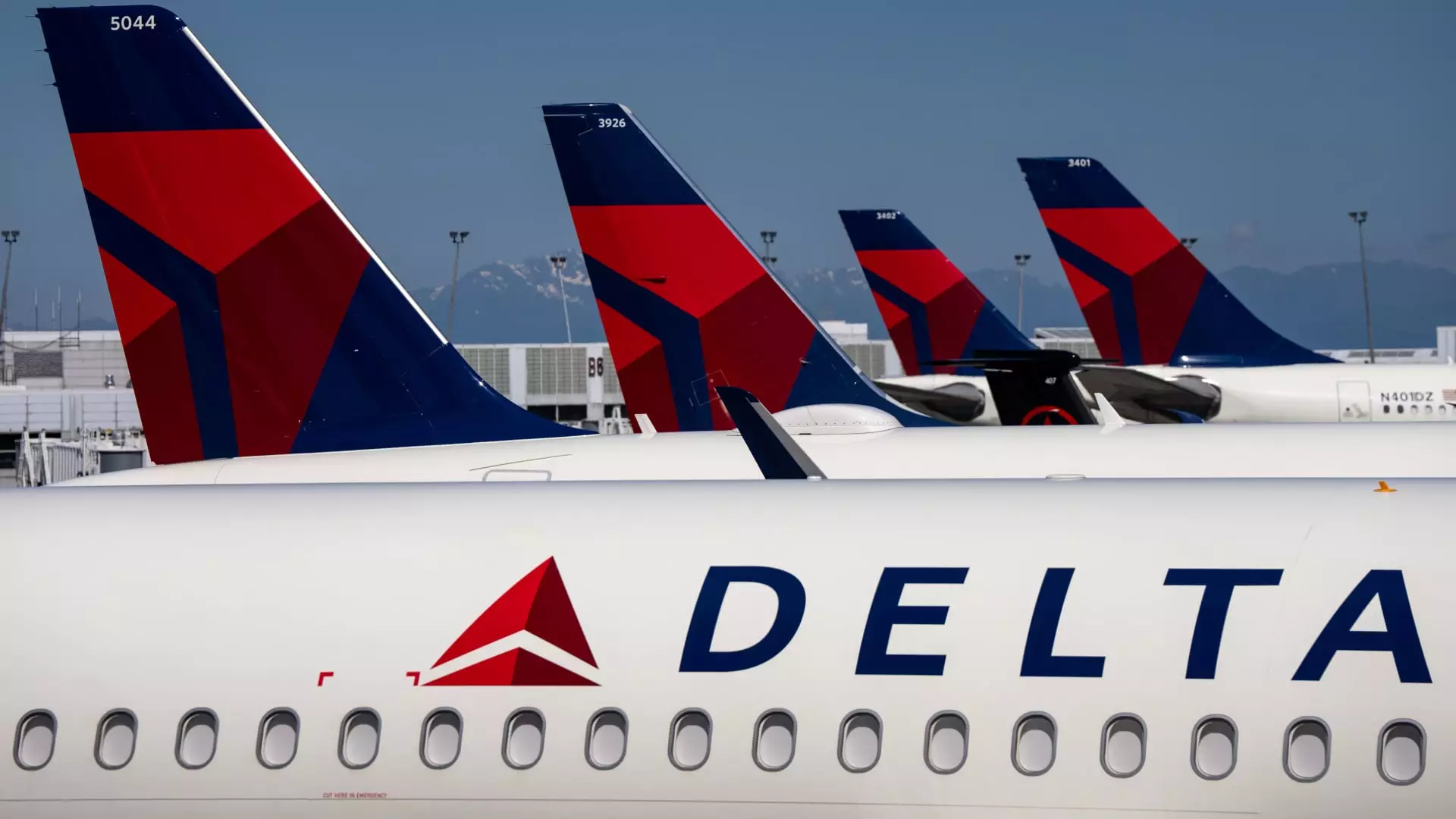Delta Air Lines, a titan of the aviation industry, has recently lowered its first-quarter revenue and profit forecasts, igniting alarms about the overall health of the travel sector. This downturn is steep, with Delta now predicting a revenue increase of only 5%, a significant cut from its earlier guidance. The adjusted earnings per share forecast was similarly revised downward, leading to a sobering outlook for shareholders. Investors reacted with urgency, driving Delta shares down by more than 13% after hours—clear evidence that confidence is faltering not just in Delta, but across the entire airline industry.
Consumer Sentiment: A Damning Analysis
The heart of Delta’s predicament lies in a disheartening report on domestic demand. CEO Ed Bastian candidly noted that while he does not foresee an impending recession, the drop in consumer confidence is troubling. A reluctance to book flights—whether for leisure or business—underscores a growing hesitancy among travelers that may be exacerbated by recent safety incidents. The unsettling feeling of insecurity can cripple an industry that thrives on the assurance of safety and reliability.
What remains perplexing is how a sector that once exhibited remarkable resilience post-pandemic is now susceptible to these psychological shifts among consumers. The airline industry, characterized by its prior revival, is now fragile, teetering on the edge of a demand cliff due to multifaceted issues including macroeconomic uncertainty and, notably, the ripple effects of in-flight safety concerns.
The Impact of Safety Incidents on the Industry
It is worth considering the implications of the recent midair incidents that have rattled consumer trust. The collision between a regional jet and an Army helicopter, along with Delta’s own landing crash in Toronto, though not fatal, could be casting a long shadow over public perception. This diminishing faith in air travel safety can create propulsion toward alternative modes of transportation—something airlines can’t afford during fragile economic times.
Bastian’s acknowledgment of safety concerns as a contributing factor to reduced bookings might indicate a need for the industry leaders to pivot their focus toward transparency and safety innovation. If travelers are suffering from psychological barriers, it becomes paramount for airlines to not only convey their safety record but also to invest in measures that restore consumer faith without delay.
A Glimpse Into the Future of Air Travel
As the JPMorgan airline industry conference approaches, there’s palpable tension in the air. Executives from other major carriers like American Airlines and Southwest Airlines will likely share similar cautionary tales, highlighting a collective call to action for the industry. It’s imperative that airline executives counteract this downturn through strategic marketing and innovative service offerings, focusing on rebuilding trust and engagement with their customer base.
Current events suggest that the future of air travel hangs in a delicate balance. Airlines must navigate the challenges posed by shifting consumer behavior, but with a spotlight on safety and customer reassurance, there remains a pathway for recovery. Delta’s struggles may serve as a wake-up call: without conscious efforts to address its foundational issues, the airline industry could face an even harsher reckoning in the months ahead.

